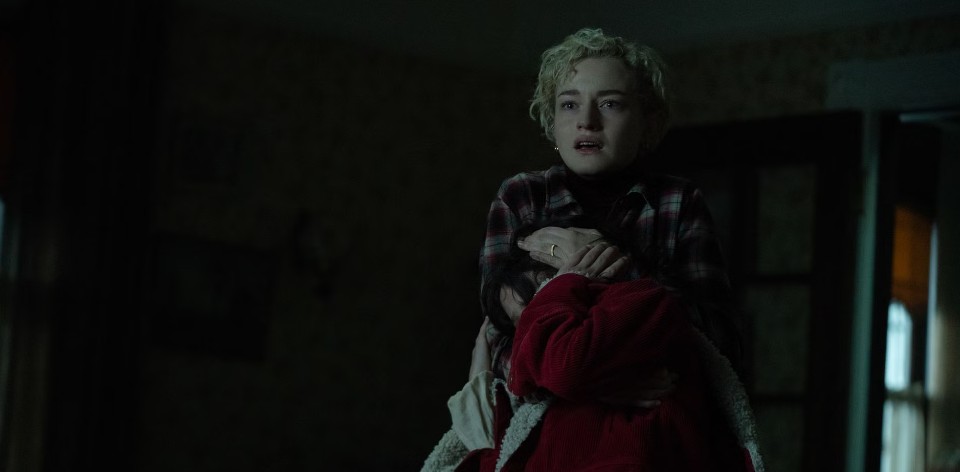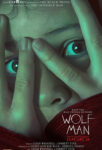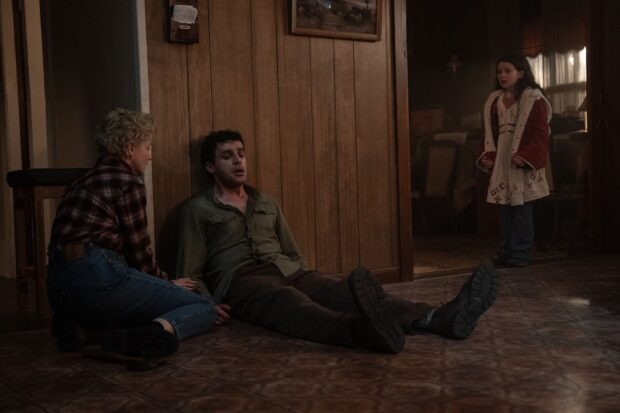If you think studio franchises and crossover sequels are a product of the 21st century, let me introduce you to the Universal Monster movies. During their heyday in the 1930s and 1940s, Universal released some two dozen films featuring iconic characters ranging from Dracula and Frankenstein to the comedic antics of Abbott and Costello Meet the Mummy.
Leigh Whannell’s WOLF MAN, co-written with his wife Corbett Tuck, honours this storied legacy while carving out its own identity. It pays homage to George Waggner’s original The Wolf Man (1941), starring the legendary Lon Chaney Jr., but also draws on nearly a century of werewolf lore—from An American Werewolf in London and The Howling (both 1981) to Universal’s more recent, less successful reboots.
Whannell and Tuck distinguish their take by slowing the pace and grounding the story in psychological tension rather than pure body horror. Like Larry Talbot before him, Blake (Christopher Abbott) returns to his childhood home to settle his late father’s estate. Haunted by deep-seated trauma from his survivalist father’s harsh upbringing and struggling with a fractured marriage to Charlotte (Julia Garner), Blake pours his protective instincts into their daughter, Ginger (Matilda Firth).
Soon after arriving, the family is involved in a car accident, and Blake is mauled by an unseen creature. They barely escape to the house as the beast relentlessly pursues them. But as the night stretches on, it becomes horrifyingly clear: Blake has been infected, and he is beginning to change.
There are few surprises in WOLF MAN. From the exploration of Blake’s paternal issues to his inevitable transformation, the film remains tethered to folkloric traditions. There’s only so many times you can watch a child nervously ask, “What’s happening to Daddy?” while he grows visibly more wolf-like before it starts edging into absurdity.
Yet Whannell and Tuck approach the material with sincerity. In interviews, Whannell has cited degenerative diseases like Alzheimer’s, Parkinson’s, and cancer as inspirations. The film depicts a family grappling with Blake’s mental and physical disintegration: he loses speech, momentarily forgets loved ones, and lashes out as his lupine fate takes hold. For Blake, the world itself seems to unravel, and the audience is frequently put in his shoes, where the distinction between reality and madness blurs.
However, the film falters in its supporting characters. Charlotte is underdeveloped, her emotional rift with Blake left unexplored. She muses vaguely about not knowing how to be a mother, but her arc feels like a cliché: the too-busy Big City Gal rediscovering her family in backwoods Oregon—it’s Hallmark with an added dose of body horror! For an actor of Julia Garner’s calibre, it’s a missed opportunity, leaving her role as little more than a bystander to Blake’s transformation.
On a technical level, WOLF MAN impresses. Whannell and cinematographer Stefan Duscio deliver stunning visuals, with Oregon’s landscapes providing a haunting backdrop. The ‘wolf vision’ sequences are particularly striking, blending cranked-up ASMR-like sound design with surreal imagery—think Total Eclipse of the Heart with the intensity dialed up to eleven. However, the film’s slow-burn approach means that those seeking quick thrills or Rick Baker-style effects may walk away disappointed.
Ultimately, it’s hard to pin down who WOLF MAN is for. It’s a deliberate and distinctive take on familiar material, but it doesn’t break the mould enough to stand out. Horror fans might find the pacing too restrained, while drama enthusiasts may be deterred by the genre trappings. What remains is a film about a family on the brink, held together by a strong lead performance and a commitment to mood. For some, that may just be enough.
2025 | USA | DIRECTOR: Leigh Whannell | WRITERS: Leigh Whannell and Corbett Tuck | CAST: Christopher Abbott, Julia Garner, Matilda Firth, Sam Jaeger | DISTRIBUTOR: Universal Pictures | RUNNING TIME: 103 minutes | RELEASE DATE: 16 January 2025 (Australia), 17 January 2025 (USA)






